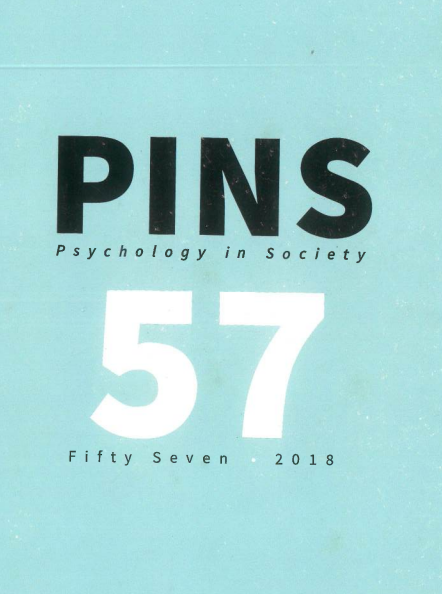Paradigm revolutions and discourse debates
DOI:
https://doi.org/10.57157/pins2018Vol57iss2a6046Keywords:
discursive psychology, critical psychology, critical discourse, paradigm crisis, political psychologyAbstract
[BOOK REVIEW]
Parker, Ian (2015)
Psychology after the crisis: Scientific paradigms and political debate.
London: Routledge.
ISBN 978-1-84872-207-1 pbk. 126 pages
Parker, Ian (2015)
Psychology after deconstruction: Erasure and social reconstruction.
London: Routledge.
ISBN 978-1-8487-209-5 pbk. 136 pages
Parker, Ian (2015)
Psychology after discourse analysis: Concepts, methods, critique.
London: Routledge.
ISBN 978-1-84872-211-8 pbk. 126 pages
Critical and discursive psychology have long been the sites to contest the roles of language, institutional knowledge and power structures in the maintenance of the discipline of psychology. For over 25 years, Ian Parker has been a key leading figure in the development of these debates. Until now, some of the central ideas of this critical work have remained disparate and scattered, this dispersion being further reinforced by the sheer vastness and diversity of approaches that consider themselves “critical”. In his Routledge-series, Psychology after critique, for the first time, Parker brings together a reworked range of his most important papers to present a focused and radical presentation of key debates that he argues emerge from an early “paradigm crisis” in the psychological field. As a response to the general discontent with the laboratory experiment as the primary mode of framing, investigating and understanding the “psychological”, this crisis enabled the materialisation of qualitative research as a “paradigm revolution” that Parker argues paved the way for a critical and thus a political psychology, in both its conceptual and methodological forms.
Downloads
Downloads
Published
How to Cite
Issue
Section
License
This journal is an open access journal, and the authors' and journal should be properly acknowledged, when works are cited.
Authors may use the publishers version for teaching purposes, in books, theses, dissertations, conferences and conference papers.
A copy of the authors’ publishers version may also be hosted on the following websites:
- Non-commercial personal homepage or blog.
- Institutional webpage.
- Authors Institutional Repository.
The following notice should accompany such a posting on the website: “This is an electronic version of an article published in PINS, Volume XXX, number XXX, pages XXX–XXX”, DOI. Authors should also supply a hyperlink to the original paper or indicate where the original paper (http://www.journals.ac.za/index.php/pins) may be found.
Authors publishers version, affiliated with the Stellenbosch University will be automatically deposited in the University’s’ Institutional Repository SUNScholar.
Articles as a whole, may not be re-published with another journal.
The copyright of the article(s) lies with the author(s).
The copyright of the journal lies with PINS-psychology in Society.
The following license applies:
Attribution CC BY-NC-ND 4.0 - https://creativecommons.org/licenses/by-nc-nd/4.0/

